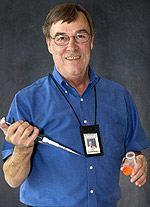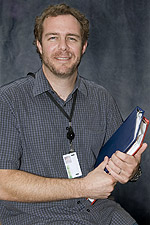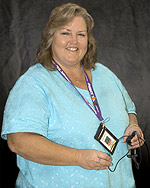An estimated one million smokers will attempt to kick the habit this month as part of the annual Great American Smokeout. The Siteman Cancer Center at Washington University School of Medicine and Barnes-Jewish Hospital will offer its annual “Siteman Smokeout for Life,” Thursday, November 15 from 10 a.m. to 2 p.m. at the Center for Advanced Medicine at the corner of Euclid and Forest Park (Learn more.)
The University is dedicated to helping students and employees quit smoking. Those interested may sign up now for the free Call-2-Quit program by calling 1-866-90-2-QUIT (1-866-902-7848). The program offers trained smoking cessation coaches to help motivate smokers to quit. More help for quitters can be found at healthyliving.wustl.edu, which has registration information for Freedom from Smoking Classes beginning in January.
As part of an awareness effort by the School of Medicine, several members of the Washington University community recount their reasons for quitting smoking below. Their statements can also be found on posters across campus.

Connie Pliemling
Gifts and grants specialist, Department of Surgery
“I had smoked for 32 years. My 4-year-old granddaughter had cried to her mother that I was going to die because I smoked. When my daughter called and told me that, it really hurt me, so I started really trying to quit smoking. When the School of Medicine announced the tobacco-free policy, I knew it was going to be a problem, so I might as well quit before that went into effect. I heard about all of the programs offered by the University and ended up in the Call-2-Quit program and the Chantix study. The young lady who worked with me always had ideas and suggestions, and it programmed me to think like a nonsmoker. It was very important to my whole not-smoking program, and I don’t think that I would have done as well without it. My granddaughter’s concern really helped me put more value on my life.”

Harold Sims
Research lab supervisor, Department of Medicine
“The School of Medicine’s tobacco-free policy encouraged me to quit. I took it as the push that I knew someone needed to give me to do what I’d wanted to do for years. I smoked for 40 years, and the longer I smoked, the more I used that as an excuse why I didn’t need to quit. I went to the Freedom from Smoking classes to support a coworker, but I thought it wouldn’t help me. But what made it work for me was that the leader kept focusing on having a plan for the first day we quit and gave us ideas like eating oranges or inhaling through a straw, so I came to work with a bunch of oranges and cut-off straws. It turns out that everyone in our class is still smoke free, and I didn’t think I would ever quit! It worked out well, and I’m happy.”

Lee Hoffer, PhD
Research instructor, Department of Psychiatry
“I tried to quit a few times before, but I didn’t have support. I wanted to take advantage of the programs offered by the University and try a new method. The Freedom from Smoking classes were very helpful. I appreciated being around other people trying to quit and having feedback from professionals whose job it is to help people quit smoking. The facilitator was excellent in preparing me for what to expect and in helping me understand my smoking patterns in advance of quitting. One of the things about the class is that it helps focus your attention on the benefits of being smoke-free instead of complaining about not being able to smoke. The support after I’d quit really helped me maintain my new behaviors. I highly recommend the program to anyone wanting to make this important change. Going to the first class is the hardest, but if you stay with it, you will benefit.”

Donna McCartney
Patient billing services representative II, Department of Surgery
“I decided to quit because my husband, a diabetic, was a heavy smoker and the best way to help him quit was to do it together. He had tried to quit before and went back to smoking, but we decided we needed to take a stand. We had auricular therapy and neither of us have smoked since. We were mentally ready to quit. Now if I have a craving, I remember the smell, the dirt and the filth it caused. If you think about it, that’s what you’re doing to your lungs. I have the support of friends and family, many of whom have also quit smoking. There are times when life has thrown us some big bad curves, when I think I really wanted a cigarette, but I’ve stayed away from it.”